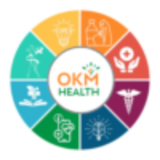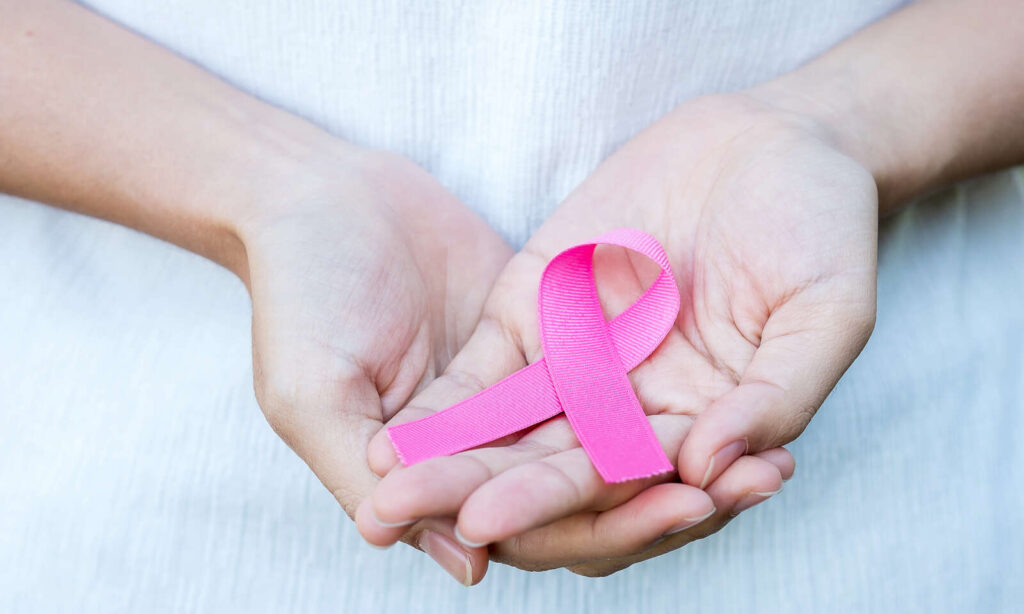Early detection of signs is key. Breast cancer is a type of cancer that develops in the cells of the breasts. The second most common cancer in women to be diagnosed in the United States is breast cancer, after skin cancer prevalence. Both men and women can develop breast cancer, but women are much more likely to do so.
SYMPTOMS
Breast cancer signs and symptoms may include:
- A lump or thickening that feels different from the surrounding tissue in your breast;
- A change in the size, shape, or appearance of your breast;
- Changes to the skin over your breast, such as dimpling;
- A newly inverted nipple;
- Peeling, scaling, crusting, or flaking of the pigmented area of your skin surrounding the nipple (areola) or breast skin
When to Visit a Physician
Make a doctor’s appointment right away if you discover a lump or other change in your breast, even if a recent mammogram was normal.
CAUSES
The abnormal growth of some breast cells is what causes breast cancer, according to doctors. These cells continue to multiply and divide more quickly than healthy cells do, forming a mass or lump. In order to reach your lymph nodes or other parts of your body, cells can spread (metastasize) through your breast.
Invasive ductal carcinoma, a type of breast cancer, typically starts with cells in the ducts that produce milk. Breast cancer can also start in other cells or tissues within the breast, including the glandular tissue known as lobules (invasive lobular carcinoma).
The risk of breast cancer may be increased by hormonal, behavioural, and environmental factors, according to research. However, it is unclear why some people with risk factors never get cancer while others with risk factors do. It’s likely that a complex interaction between your environment and genetic makeup leads to breast cancer.
BREAST CANCER THAT IS INHERITABLE
The majority of breast cancers, between 5 and 10 percent, are thought to be caused by gene mutations that have been passed down through a family.
There are several inherited mutated genes that can raise the risk of developing breast cancer. The most well-known ones are the BRCA1 and BRCA2 genes, which both significantly raise the risk of developing breast and ovarian cancer.
Your doctor may advise a blood test if you have a strong family history of breast cancer or other cancers in order to help identify specific BRCA mutations or other genes that are being passed down through your family.
Think about asking your doctor to recommend a genetic counselor who can look over your family’s medical history. In order to help you with shared decision-making, a genetic counselor can also go over the advantages, risks, and limitations of genetic testing.
RISK FACTORS
Anything that increases your risk of developing breast cancer is considered a breast cancer risk factor. However, having one or more breast cancer risk factors does not guarantee that you will develop the disease. In addition to being a woman, many women who develop breast cancer have no other known risk factors.
The following are some of the elements linked to an elevated risk of breast cancer:
Being a female – Breast cancer is much more common in women than in men.
Advancing in Age – As you get older, your risk of breast cancer rises.
One’s history of breast conditions – You are more likely to develop breast cancer if a breast biopsy revealed lobular carcinoma in situ (LCIS) or atypical hyperplasia of the breast.
Personal breast cancer history – You run a higher risk of getting breast cancer in the other breast if you’ve already had it in the first.
Family breast cancer history – Your risk of breast cancer is increased if your mother, sister, or daughter had the disease, especially when they were young. Nevertheless, the majority of breast cancer patients do not have a family history of the condition.
Inherited genes that raise the risk of cancer– It is possible for parents to pass on certain gene mutations that increase the risk of breast cancer to their offspring. The BRCA1 and BRCA2 gene mutations are the most well-known ones. These genes can significantly raise your risk of developing breast cancer and other cancers, but they do not guarantee that you will develop one.
Exposure to radiation – Your risk of developing breast cancer is higher if you had chest radiation treatments as a child or young adult.
Obesity – Your risk of developing breast cancer rises if you are obese.
Beginning your period when you’re younger – Your risk of developing breast cancer rises if you start menstruating before age 12.
Starting menopause later in life – Breast cancer is more likely to strike women who started menopause later in life.
Being a parent for the first time later in life – Breast cancer risk may be higher for women who have their first child after turning 30.
Never been pregnant – Compared to women who have had one or more pregnancies, women who have never been pregnant have a higher risk of developing breast cancer.
Hormone therapy after menopause – Breast cancer risk is higher for women who use estrogen and progesterone-containing hormone therapy drugs to treat menopausal symptoms and signs. When women stop taking these medications, their risk of developing breast cancer decreases.
Drinking Alcohol – Alcohol consumption raises the possibility of breast cancer.
PREVENTION
Making adjustments to your daily routine may lower your risk of developing breast cancer. Try to:
Learn about your breasts by performing a breast self-exam to raise breast awareness. Occasionally checking their breasts during a breast self-exam can help women get to know their breasts and develop breast awareness. Consult your doctor right away if you notice any new changes, lumps, or other unusual symptoms in your breasts.
Breast cancer cannot be prevented, but increasing your awareness of it can help you recognize any unusual signs and symptoms as well as better understand the typical changes that your breasts go through.
If you do consume alcohol, do so in moderation. If you choose to drink, keep your intake of alcohol to no more than one drink per day.
Try to work out most days of the week. On most days of the week, try to get in at least 30 minutes of exercise. Ask your doctor if you can resume exercise if you haven’t been active recently, and start out slowly.
Don’t overdo postmenopausal hormone replacement. Combination hormone therapy may make breast cancer more likely. Discuss the advantages and risks of hormone therapy with your doctor.
CONCLUSION
Breast cancer diagnosis and treatment have advanced thanks to significant funding for research and awareness campaigns. With earlier detection, a new personalized approach to treatment, and a better understanding of the disease, breast cancer survival rates have improved and the number of deaths linked to the disease is steadily declining.

